Rep. Teresa Martinez, the vice chair for the Arizona House Transportation Committee and one of Maricopa’s representatives in the state house, posed the question of whether the Arizona Department of Transportation has run amok at a Maricopa town hall last summer.
After an exhaustive look at the department’s Performance Audit and Sunset Review, completed in the fall of 2023, one must wonder if Martinez was on to something.
The audit, which was last performed nearly a decade ago by the Arizona Auditor General, uncovered a multitude of issues — a lack of security protocols when it came to the safekeeping of Arizona’s drivers’ personal information on the department’s website, an episode where the agency lost nearly half a million dollars to fraud and a dearth of oversight on third-party vendors who perform exams for drivers looking to earn or renew CDL licenses.
The Performance Audit and Sunset Review serves as a mechanism allowing the legislature to hold the department of transportation — and other state agencies — accountable.
The Arizona Transportation Committee held a hearing last month to review the audit’s findings.
The term “sunset” connotes the legislature can do away with the department — or any other state agency that fails the review process horribly — altogether. However, it’s important to note no one discussed taking that extreme action against ADOT during last month’s hearing.
Breach or thievery?
To get a license, a driver must submit various forms of ID including a passport or social security card and birth certificate to the Motor Vehicle Department, a division of ADOT, and sit for a photo. It demands the exchange of a lot of sensitive information.
What if a third party — not the driver nor ADOT — accessed this information?
In November 2019, ADOT became aware of a fraudulent pattern being used for theft of public money through its MVD system.
ADOT identified 177 accounts with $382,408 in losses of public funds that could have been used by the department elsewhere. Through its search, Arizona’s auditor general found an additional 83 accounts following the same fraudulent patterns in August for an average of $1,000 each. About half a million dollars in public funds were stolen across 260 incidents.
It remains unclear who is responsible.
Through its own internal investigations, the department froze the accounts connected to fraudulent activities and, when possible, sent out notices demanding the return of those funds. It never, however, investigated if its system had been hacked nor ensured the personal records of Arizonans on its MVD website are safe.
“At the time of the audit, the department had been able to recover $216,412 of the $382,408 it identified, but it had not recovered the remaining $165,996 of public monies,” the audit stated.
“Further, the department had not recovered $32,362 related to the additional 83 customer accounts that appear to have a similar potentially fraudulent pattern. As such, the department had not recovered at least $198,358.”
State law requires such problems to be reported to the state’s attorney general, homeland security division and auditor general within one business day.
The audit found despite having knowledge of a possible breach, ADOT did not report it for nearly three years. In 2022, while the audit was underway, ADOT finally reported the potential fraud to the appropriate authorities.
Per the audit, the department still hadn’t fully acted to protect Arizonans’ sensitive information as late as August last year.
“In August 2023, the department acknowledged that some of these incidents may be security incidents. However, it had not conducted security incident investigations.”
Neither the auditor general nor ADOT knows whether the system was hacked. The auditor general’s report inferred ADOT’s inaction may have prevented any of those answers from coming to light.
“Because the department did not promptly report all potential fraud/theft or investigate suspected security incidents to determine if there was a security system breach, authorities were unable to fulfill their responsibilities to address risks of potential fraud and theft and a suspected security system breach.”
The Auditor General’s Office also found emails between department officials about an incident where identity thieves used ADOT’s MVD online system to obtain fraudulent duplicate driver licenses. InMaricopa reported a man in Maricopa used the MVD online system to defraud ADOT and obtain fraudulent license plates in December.
Rep. Martinez said the situation is a dangerous one and that accountability is needed.
“So, a person can come in with inadequate documentation, get an Arizona driver’s license or travel ID proving that they’re a resident and citizen,” Martinez said. “And they had no documentation to prove it … That’s a concern.”
Martinez felt the idea ADOT was holding itself accountable through its self-audit rang hollow.
“Great, you have a self-review, wonderful,” Martinez said. “Tell me about that process … and they couldn’t. It’s like when you’re going on a diet, you have goals you want to meet and a plan you want to follow. They had none of that.”
Examining the examiners
Drivers who earn a Commercial Driver’s License, often called a CDL, operate school buses, tractor-trailers and other large vehicles. Their mistakes often come with major repercussions.
Monette Kiepke, a performance audit manager, spoke at last month’s hearing describing two disturbing incidents involving the process by which CDLs are granted in Arizona.
The first was of an examiner working for a community college who coached the applicant through the exam, showing the applicant how to perform maneuvers, drive at night, make turns and even what gear to put the vehicle in — all of which were prohibited.
“In this case, the applicant received a passing score, obtained their CDL and approximately three months later, was involved in a single-vehicle accident in the early morning while maneuvering a commercial vehicle containing hazardous materials,” Kiepke said.
Another example came when an examiner who worked at a university passed an applicant who couldn’t stay in a lane and tried to turn through a crosswalk while a pedestrian was present. The applicant would have made the turn had the examiner not intervened.
The unqualified applicant’s passing grade was overturned by the inspector.
Accountability
Legislators in Arizona are term-limited to eight years. However, in the past, sunset reviews for state agencies only happened every eight to 10 years.
Following last month’s hearing, Martinez questioned the wisdom of such a system.
“How do we hold them accountable if their next audit happens after we’re out of office?” Martinez asked after the meeting. “Nope. Not going to happen. I want to be able to hold their feet to the fire.”
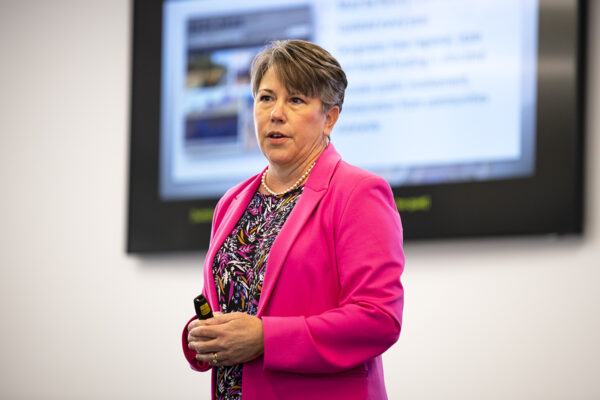
The ADOT director position is one that’s nominated by the governor and approved by the Arizona Senate. Director Jennifer Toth took office Jan. 30, 2023, during the middle of the sunset review, taking over for outgoing Director John Halikowski.
Toth did not discuss the audit during a speaking event in Maricopa last month.
State House Rep. Keith Seaman, a Democrat who represents Maricopa along with Martinez, suggested six years before the next audit.
“I’ve found Director Toth to be responsive when I’ve had a question about projects in my district,” Seaman said. “I think the department has a lot of improvements to make and it’ll get there with her leadership.”
Martinez agreed with Seaman but recognizes the challenges of turning around a large bureaucracy like ADOT.
“I’ve had really good interactions with the director,” Martinez said. “I’ve found her to be transparent and responsive. I acknowledge that she’s come into a difficult situation that’s not her fault. But there’s a lot that’s gone on in the last eight years at ADOT that needs our attention.”
Martinez held steady, recommending four years before the next audit, but added:
“I could be talked down to two or three years.”
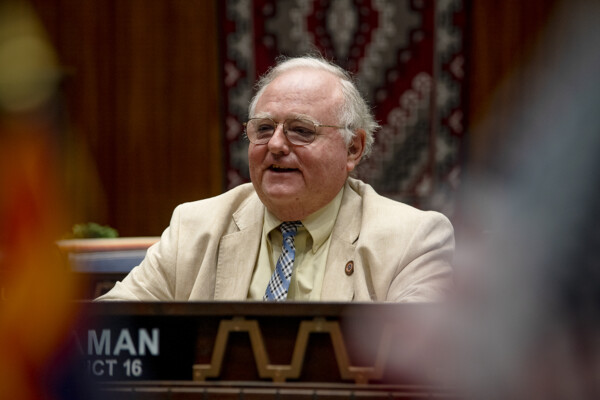
Last month, Gov. Katie Hobbs released her proposed state budget, where, to make up for a nearly $1 billion deficit, she suggested a laundry list of transportation cuts worth $420 million. That included cutting $25 million for the Riggs Road overpass on State Route 347 that was allocated in 2021.
With a broad brush, Hobbs described all those transportation projects, including Riggs Road, as “wasteful taxpayer spending.”
Ironically, Hobbs sent a personalized video message to the Maricopa Chamber of commerce just a month earlier, taking credit for securing the money that would improve traffic and safety on SR 347.
Teresa Martinez (R-Casa Grande), one of Maricopa’s state representatives and the House vice chair of the Arizona House Transportation Committee, felt the statement is an example of how out of touch Hobbs is with average Arizonans.
“I think she has clearly never been on SR 347 and has no intention of ever using that road,” Martinez said. “I believe that she’s chauffeured around and the roads that aren’t wasteful taxpayer spending are the ones she uses.”
Tens of thousands of Maricopans commute daily on SR 347 to and from the Valley, making it one of the busiest and most congested highways in the state.
Last summer, the Arizona Department of Transportation released its safety study of SR 347. Between July 1, 2017, and June 30, 2022, there were 967 crashes, or one every other day. Of those crashes, 21 resulted in serious injuries and 15 in death.
According to the same ADOT study, the Riggs Road intersection had the fourth-highest number of collisions at a signalized intersection on a state highway in Arizona.
Making the daily drive a little easier to stomach was the promise that one day there would be an overpass at Riggs Road instead of a stoplight, a major safety improvement — but now the project is in jeopardy.
Martinez feels politics shouldn’t play a role in road safety.
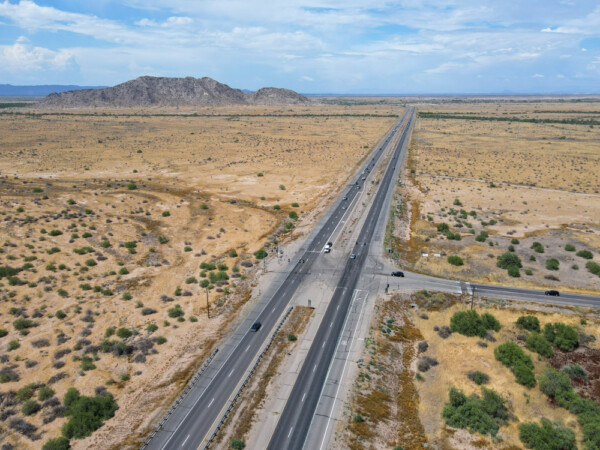
The Riggs Road overpass project has served as the anchor project in a line of planned improvements for SR 347. Rep. Bret Roberts (R-Maricopa) secured $35 million in state funds for the overpass before he moved to South Carolina in 2021. Immediately after the signing of the bill, $10 million of that money went to ADOT for design and environmental impact studies.
When Roberts left, Martinez was tapped as his replacement and won re-election the following year.
Martinez asked ADOT Director Jennifer Toth for an update on the project’s progress at a January hearing to review the department’s Performance Audit and Sunset Review.
Toth explained the Riggs Road overpass project is at the end of the design concept report and environmental assessment. The project is scheduled to advertise for construction in 2026 with construction beginning in late 2026 or early 2027, with it opening for traffic in 2028.
Martinez feels ADOT’s deliberate nature has landed the Riggs Road overpass, and other projects concerning SR 347 in this precarious position.
“They’re bureaucrats,” Martinez said. “They’ll tell you, ‘Oh you know, it takes six months for a survey.’ When month seven comes around, I follow up wanting to know the progress and they say, ‘You know, we haven’t gotten that yet. Someone should send an email.’ And then two weeks later, another email is sent and the next thing you know, it’s been a year.”
Despite the fact a bill was signed into law and the money allocated, Martinez feared it would be a target.
“It was just sitting there,” Martinez said. “That’s why I’m asking ADOT, ‘Why does it take two years to get a contractor? Why is that road not already being built?
Roberts got the money for the Riggs Road overpass, but Martinez has taken on the job of guarding those funds and making sure they end up helping the tens of thousands of motorists who travel on SR 347 each day.
“I would never take credit for the work that Bret Roberts did, but once he’s gone, no one cares?” Martinez said.

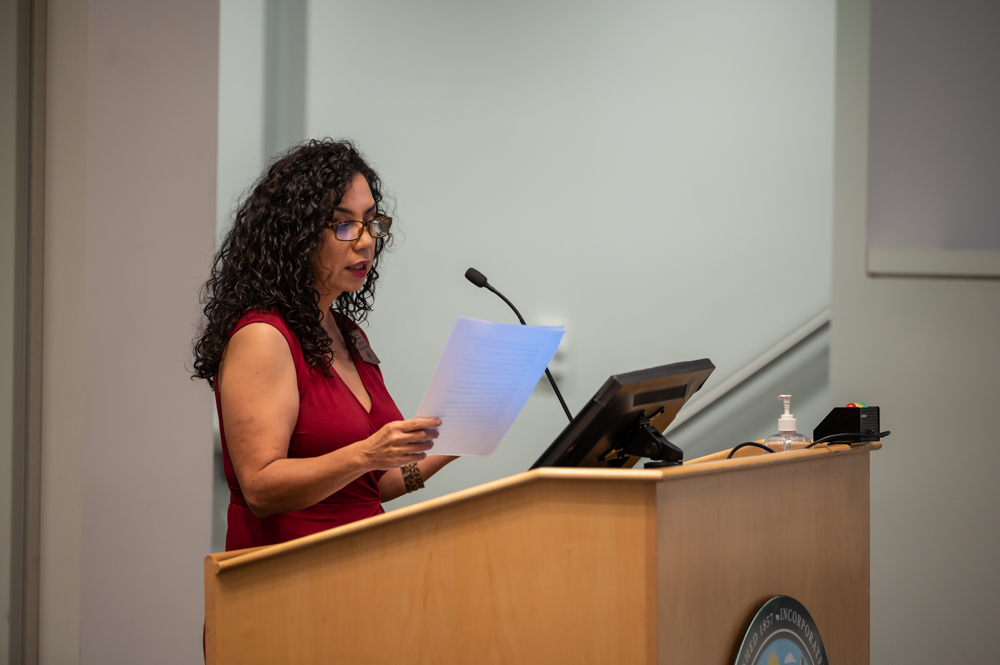



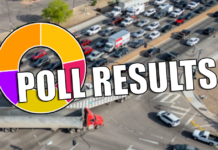

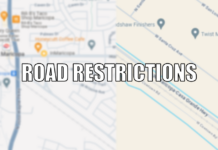

![City gave new manager big low-interest home loan City Manager Ben Bitter speaks during a Chamber of Commerce event at Global Water Resources on April 11, 2024. Bitter discussed the current state of economic development in Maricopa, as well as hinting at lowering property tax rates again. [Monica D. Spencer]](https://www.inmaricopa.com/wp-content/uploads/2024/04/spencer-041124-ben-bitter-chamber-property-taxes-web-218x150.jpg)


![Alleged car thief released without charges Phoenix police stop a stolen vehicle on April 20, 2024. [Facebook]](https://www.inmaricopa.com/wp-content/uploads/2024/04/IMG_5040-218x150.jpg)




